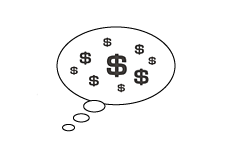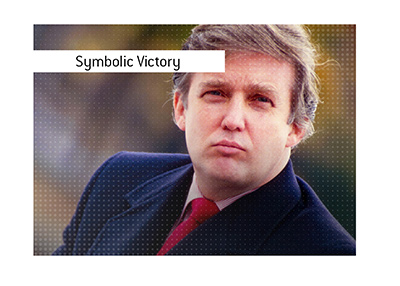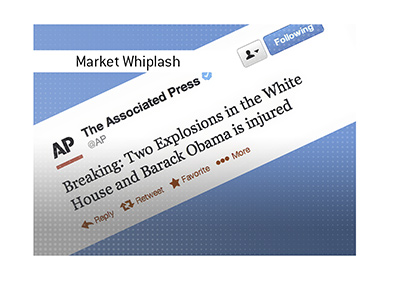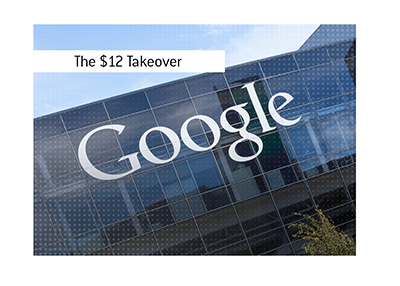I Miss The Good Old Days of Trading
 10-11 years ago, the holiday season (Thanksgiving through to Christmas) used to be THE best time of the year to be a trader.
10-11 years ago, the holiday season (Thanksgiving through to Christmas) used to be THE best time of the year to be a trader. Back in the late '90s/early '00s, everybody and their mother was opening up an online trading account. Gone were the days of phoning up a full-service broker and paying obscene amounts in commission to execute a trade - now a person could trade from the comfort of their own home for a fraction of the cost.
Almost everybody knew someone who had made a killing trading Internet stocks, and this just fanned the flames of a national obsession with the stock market. CNBC became required viewing, and millions of traders congregated on sites such as Raging Bull and Silicon Investor to discuss the markets.
Technology stocks offered the greatest potential rewards for investors, which helped to send the NASDAQ through the roof. Investors fought to position themselves in new technology IPOs like starving dogs fighting over scraps of food. It soon became apparent that a person could simply buy a tech IPO as soon as it opened, sell it by the end of the day and make a small fortune. This led to ridiculously high gap-ups in new offerings.
Many traders/investors were making money hand-over-fist during this era, which led many people to abandon any notion of value investing and simply bounce from stock to stock, trading whatever was hot on that particular day. There was a time, believe it or not, when Warren Buffett was being openly ridiculed for not investing at least some of Berkshire Hathaway's money in dot-com stocks.
Many smaller companies soon figured out that all you had to do was include a "magic word" or two in a press release and they would see their stock multiply in value over the course of just a few hours. Some of the "magic words" that I remember from back then - "fiber optics", "Microsoft", "China". Issue a press release with any of these words included in the story and your stock was almost sure to soar.
The holiday season was always a particularly good time for trading. In particular, the week of Thanksgiving was almost sure to produce dozens of insanely great trading opportunities, both on the long and short side. Many newly minted "traders" were enjoying light weeks at work, which meant that they had more time to focus on the markets. Back then, it was nothing to see stocks gain 600-700% in one day.
At the time, daytrading chat rooms were a big deal (names such as Tokyo Joe and Waxie were ruling the roost back then), and this just helped to pour gasoline onto the fire. A chat room would pick up on a press release from some obscure tech company, chat room traders would pile in, the stock would soar, CNBC would breathlessly report about the company, the stock would REALLY soar, trading would close for the day, talk about the company would reach a fever pitch on Yahoo!, Silicon Investor and Raging Bull, the stock would gap up the next day, level out and then eventually tank once traders lost interest. This pattern would constantly repeat itself during this golden era of trading.
Like any other bubble, greed was dictating the action. Many people, intoxicated by the lure of the easy money in the markets, started taking larger and larger positions. Many people decided to really go for it and trade on margin. This helped the NASDAQ to go parabolic - the index went from about 1,500 in August of 1998 to over 5,000 in March of 2010. Think about the sheer ridiculousness of that move..
Eventually the bubble popped and people quickly turned on the markets. Why not? Many people lost their shirts as the air was let out of the bubble, refusing to admit that the good times might be over. As the NASDAQ declined, more and more people started tuning out CNBC, canceling their daytrading chat room accounts and staying away from message boards such as Raging Bull and Silicon Investor.
To give you an example of how crazy things were at the time, look no further than Ragingbull.com. The site, which is an online financial message board, was purchased at the height of the bubble in a cash-and-stock deal for $168 million. In 1999, the site had 8-10 million page views per day - when the Internet bubble finally popped, traffic plummeted.
When the bubble finally popped and people lost interest in the markets, Wall Street took the opportunity to make sure that something similar would never happen again by implementing the "pattern daytrader rule". This rule, which was laughably implemented to "protect" traders with smaller accounts (especially hilarious when you consider what has taken place over the last 10 years on Wall Street), took effect on February 27th, 2001. There is no way that the rule would have been implemented a year earlier, as the public outcry would have been too loud. The rule, which you can read more about here, basically restricts the amount of daytrading that a person with less than $25,000 can do, regardless of how successful they are. The unspoken reason behind the rule (which was proposed by the NYSE and NASDAQ) was to make it harder for people to daytrade so that they would return to using full-service brokers (and pay their higher commissions).
The average person didn't really care about the markets anymore, so the rule was quietly implemented without any real resistance from the public.
--
After the bubble popped in '00-'01, a new vehicle for speculation quickly popped up - the real estate market.
Now that the US real estate bubble has also popped, does this mean that people will come clamoring back to the stock market? This seems doubtful, at least until the economy starts to put in a meaningful recovery.
--
I can't be the only one that looks longingly back at the late '90s when it comes to trading..
Will we ever have a bubble like that again? Absolutely - it's just human nature..
Don't mind me - just a little Thanksgiving Day reminiscing..
Filed under: General Knowledge



